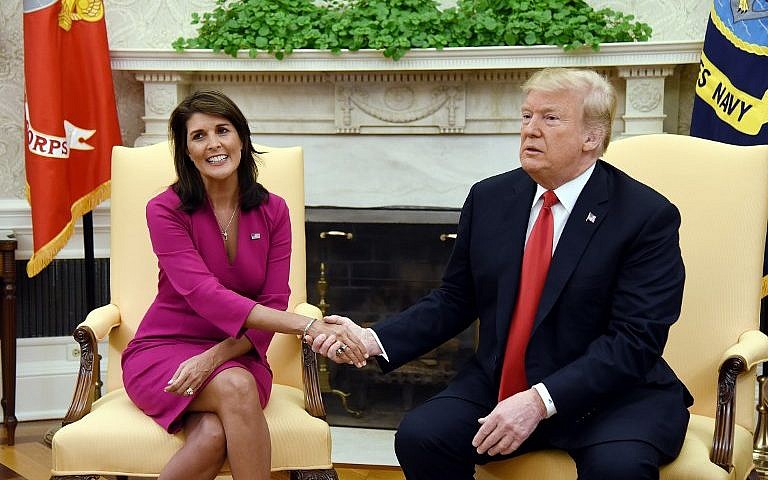Howard Jacobson: Corbyn’s Complaint
Considering British Jews’ reaction to the anti-Semitism that has seized hold of the British Labor party since it elected Jeremy Corbyn as its leader, the novelist Howard Jacobson is reminded of a favorite expression of his father’s: “take a shtum powder,” meaning “swallow a pill that will make you shut up.” Jacobson accuses some among the UK’s left-leaning Jews of making a tacit compact with Labor: the party will limit its anti-Semitism to anti-Zionism, and they won’t complain. But Corbyn and his acolytes haven’t held up their end of the bargain:
Anti-Zionism can be anti-Semitism-free, but its exponents need to keep their wits about them. There usually comes a moment when a little Jew-hatred starts leaking out. And it wasn’t long into Corbyn’s leadership before the bargain—that Labor could have anti-Zionism, so long as it remained strictly what it called itself—showed signs of fracturing. . . .
The standard Corbyn defense [to revelations of his animus toward Israel] of not remembering, not noticing, not being sure, was wheeled out to counter each of these new embarrassments in turn. When it transpired that he had defended a mural showing the world’s capitalists—all Jewish or Jewish-ish—playing Monopoly on the bent backs of naked slaves, he claimed not to have looked carefully enough to see anything offensive. Looked carefully enough! A person driving past that mural at a hundred miles an hour while checking his emails would have grasped its message. And if Corbyn hadn’t given the mural even that much attention, what was he doing defending it against the criticism of those who had?
To many, the game was up. Corbyn’s previous defense—that Zionists were the object of his ire, not Jews—no longer held water. The subject of the mural wasn’t Zionism, but Jewish exploitation of the world’s poor. If Corbyn didn’t notice any gross caricature of Jews in the mural, it could only have been because he carried an identical picture around in his head: a picture familiar to anyone schooled in Soviet anti-Semitism of the cold war, which held the Elders of Zion to be no less zealous than they had ever been in pursuit of world domination.
What it took for members of his own party finally to accuse Corbyn of racism was his unwillingness to adopt the International Holocaust Remembrance Alliance’s working definition of anti-Semitism. The sticking point for Corbyn was one particular example of what constituted anti-Semitism—“Denying the Jewish people their right to self-determination, e.g., by claiming that the existence of a state of Israel is a racist endeavor.” Though this was not a good time to be picking a fight with Jews, not being able to call Israel a racist endeavor with impunity was a concession too far. . . .
A Modern-Day Blood Libel, Dressed Up in Trendy Academic Language
In her 2017 book The Right to Maim, published by Duke University Press, Jasbir Puar—a professor at Rutgers University—advances entirely unsubstantiated and outlandish claims about Israel’s malevolent treatment of Palestinians. David Berger, a historian of medieval anti-Semitism, notes the similarities between Puar’s writings and the centuries-old accusations that Jews murdered Christian children and used their blood to make matzah, stole and “tortured” communion wafers, and poisoned wells:“We Try to Learn Every Terrorist Attack”: Inside the Top-Secret Israeli Anti-Terrorism Operation That’s Changing the Game
Israel has been accused of poisoning Palestinians [and] harvesting their organs; thousands of Jews are said to have refrained from coming to work at the World Trade Center on that fateful September 11, with Jews responsible in whole or in part for the attacks. . . . The historian Gavin Langmuir proposed a term to characterize the [medieval] blood libel, the host-desecration charge, and the well-poisoning accusation: these figments of the anti-Jewish imagination should, he said, be termed “chimerical anti-Semitism.” [Now] we encounter chimerical anti-Israelism. . . .
[Thus] Puar asserts that Israel’s policy of shooting dangerous demonstrators or attackers in a manner that avoids killing them should be seen as a strategy of maiming the Palestinian population in order to create a debilitated people more easily subject to exploitation. Written in the highly sophisticated language of theoretical discourse current in certain historical and social-scientific circles, [the accusation] has led a significant number of academics to shower the author with extravagant praise. . . .
Building on a hyperbolic statement by a Gazan water-utilities official that it would be better [for Palestinians] if Israel were to drop a nuclear bomb on Gaza, she asserts with evident agreement that he is essentially saying that “it is as if withholding death—will not let or make die—becomes an act of dehumanization: the Palestinians are not even human enough for death.”
On a spring evening in late April, I traveled to a fortified compound in the Ayalon Valley between Tel Aviv and Jerusalem. The location is not identified on Waze, the Israeli-built navigation tool, and so, as far as my app-addled cabdriver was concerned, it does not exist. Then again, the same could be said for its inhabitants: YAMAM, a band of counterterror operatives whose work over the last four decades has been shrouded in secrecy.
Upon arrival at the group’s headquarters, which has all the architectural warmth of a supermax, I made my way past a phalanx of Israeli border police in dark-green battle-dress uniforms and into a blastproof holding pen where my credentials were scanned, my electronic devices were locked away, and I received a lecture from a counter-intelligence officer who was nonplussed that I was being granted entrée to the premises. “Do not reveal our location,” he said. “Do not show our faces. And do not use our names.” Then he added, grimly, and without a hint of irony, “Try to forget what you see.”
YAMAM is the world’s most elite—and busiest—force of its kind, and its expertise is in high demand in an era when ISIS veterans strike outside their remaining Middle East strongholds and self-radicalized lone wolves emerge to attack Western targets. “Today, after Barcelona,” says Gilad Erdan, who for the past three years has been Israel’s minister for public security, “after Madrid, after Manchester, after San Bernardino—everyone needs a unit like YAMAM.” More and more, the world’s top intelligence and police chiefs are calling on YAMAM (a Hebrew acronym that means “special police unit”). During his first month on the job, recalls Erdan, “I got requests from 10 countries to train together.”
I made my way to the office of YAMAM’s 44-year-old commander, whose name is classified. I am therefore obliged to refer to him by an initial, “N,” as if he were a Bond character. N’s eyes are different colors (the result of damage sustained during a grenade blast). His shaved head and hulking frame give him the vibe of a Jewish Vin Diesel. At his side, he keeps an unmuzzled, unbelievably vicious Belgian shepherd named Django.
A damaged bus near Tel Aviv, Israel
Last fall, Israeli officials agreed to provide Vanity Fair unprecedented access to some of YAMAM’s activities, facilities, and undercover commandos. When I asked N why his superiors had chosen to break with their predecessors’ decades of silence, he gave an uncharacteristically sentimental response: “It’s important for operators’ families to hear about our successes.” (Field “operators,” as they are called, are exclusively male; women sometimes serve in intelligence roles.) N does not discount less magnanimous reasons for cooperating, however. (h/t Zvi)











































